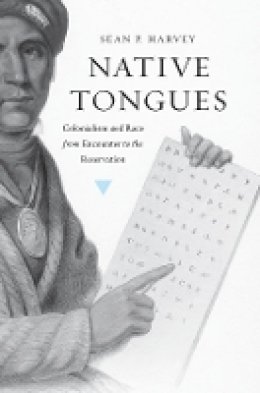
Native Tongues: Colonialism and Race from Encounter to the Reservation (Harvard Historical Studies)
Sean P. Harvey
Sean Harvey explores the morally entangled territory of language and race in this intellectual history of encounters between whites and Native Americans in the eighteenth and nineteenth centuries. Misunderstandings about the differences between European and indigenous American languages strongly influenced whites’ beliefs about the descent and capabilities of Native Americans, he shows. These beliefs would play an important role in the subjugation of Native peoples as the United States pursued its “manifest destiny” of westward expansion.
Over time, the attempts of whites to communicate with Indians gave rise to theories linking language and race. Scholars maintained that language was a key marker of racial ancestry, inspiring conjectures about the structure of Native American vocal organs and the grammatical organization and inheritability of their languages. A racially inflected discourse of “savage languages” entered the American mainstream and shaped attitudes toward Native Americans, fatefully so when it came to questions of Indian sovereignty and justifications of their forcible removal and confinement to reservations.
By the mid-nineteenth century, scientific efforts were under way to record the sounds and translate the concepts of Native American languages and to classify them into families. New discoveries by ethnologists and philologists revealed a degree of cultural divergence among speakers of related languages that was incompatible with prevailing notions of race. It became clear that language and race were not essentially connected. Yet theories of a linguistically shaped “Indian mind” continued to inform the U.S. government’s efforts to extinguish Native languages for years to come.
Product Details
About Sean P. Harvey
Reviews for Native Tongues: Colonialism and Race from Encounter to the Reservation (Harvard Historical Studies)
David J. Silverman, author of Red Brethren: The Brothertown and Stockbridge Indians and the Problem of Race in Early America An engaging and rich history that traces the study of indigenous American languages with depth and sophistication. Harvey demonstrates that the study of language became a way to understand fundamental aspects of Native culture and, as it was understood in the nineteenth century, ‘race.’
Peter C. Mancall, author of Fatal Journey: The Final Expedition of Henry Hudson Those willing to read the book carefully will find a wealth of information not easily accessed elsewhere.
C. L. Thompson
Choice
